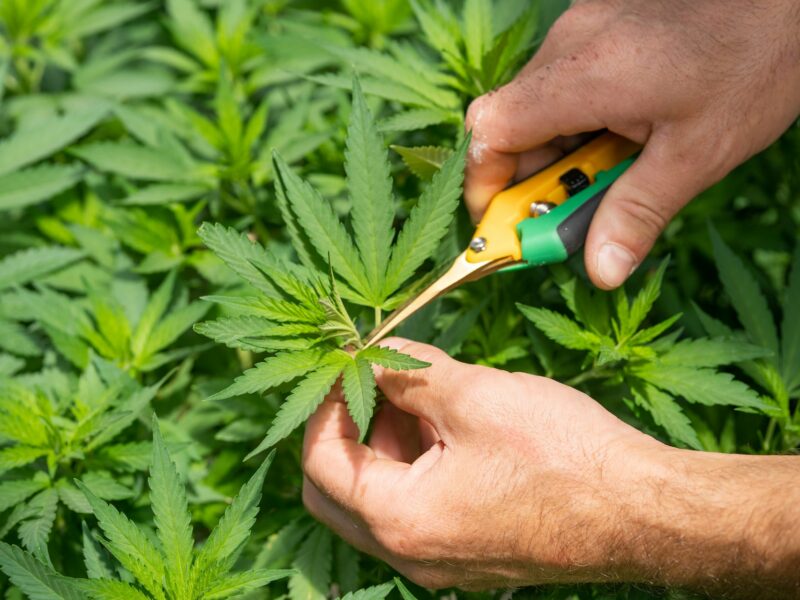The Michigan Cannabis Safety Act will make it legal for adults to consume marijuana products in Michigan. Passage into law will make it legal to grow, sell, and buy cannabis as of Dec. 6, 2018. The proposal would create a system in which marijuana is regulated by the government and available for purchase through dispensaries approved by state regulators.
Michigan’s Republican-controlled Legislature has been reluctant to sign off on recreational marijuana legalization during its decades-long hold on power in Lansing. But lawmakers finally caved after GOP Gov. Rick Snyder signed legislation last week calling for a statewide vote on the issue on Nov. 6.
How does the Michigan Cannabis Safety Act work?
According to a summary of the legislation: “The Michigan Cannabis Regulation and Taxation Act, or Act No. 2018-237 of 2018, would create the Michigan Cannabis Licensing Board (Board) to regulate cannabis activities under the law. The Board would be empowered to set industry standards and license producers, distributors, testing facilities, and retailers. In addition, the Act creates an excise tax on all marijuana products sold in Michigan that takes effect on Dec. 6, 2018. The excise tax is $25/gram of flowers or $2/gram of leaves (or both). The Act allows a municipality to exclude themselves from the licensing provisions of the Act if approved by the electors within that municipality at an election on Nov. 6, 2018. It takes effect 30 days after certified results are canvassed. The Act does not apply in counties that prohibit or restrict marijuana establishments.”
What Are The Possible Effects Of The Michigan Cannabis Safety Act?
The Michigan Cannabis Safety Act would allow individuals to possess and grow up to 12 plants of marijuana. Individuals can also sell marijuana without being subject to state taxes or regulations. The legislation also states that a person cannot be penalized for possessing fewer than 4 ounces. It is not unlawful to have recently purchased any marijuana if the individual has the legally purchased product. The bill would tax recreational marijuana at $2.50 per gram, similar to existing taxing schemes in many other states. But with several deductions designed to minimize unintended increases in taxpayer revenue. Of the revenue raised by the tax, 35 percent would go toward substance abuse and mental health programs, and 25 percent toward K-12 education. 15 percent toward law enforcement training and 10 percent toward road repair. The remaining 55 percent would go to the general fund.
The Advantages and Disadvantages of the Michigan Cannabis Safety Act
The main advantage of the Michigan Cannabis Safety Act is that it will be legal to purchase marijuana from a government-sanctioned dispensary. This is ideal for individuals uncomfortable with purchasing marijuana from authorized shops that private dealers run. Another positive aspect of the Michigan Cannabis Safety Act is that it would save individuals a lot of money. Because there will be less need to buy marijuana in black market transactions, individuals will have more money to spend on other needs. Individuals who frequently buy cannabis products may find this bill advantageous because they can purchase them in large quantities. This will allow them to buy products with a high discount, resulting in huge savings. However, the Michigan Cannabis Safety Act could be detrimental to individuals with a lot of expenses and could lead to problems with covering their bills.
The negative aspects of the Michigan Cannabis Safety Act are its high tax rates, which are more than double those in other states. The second negative aspect of the bill is that it will result in more money being spent on marijuana enforcement by state police units and law enforcement officers. This money would otherwise be used for other things, such as services for people who are homeless or disabled. If a person fails to pay taxes, it may not be easy to find a legitimate job or qualify for subsidized housing.
How Can the Michigan Cannabis Safety Act Meet Addiction and Mental Health Needs?
Michigan Cannabis Safety Act is one of the better plans for providing necessary funding for substance abuse and mental health programs. The money obtained from the bill will be used to provide these services in schools, hospitals, and other agencies. The money raised by the tax will also be able to cover substance abuse treatment costs. Treating mental health issues in cases where people suffer from addiction and mental health disorders. This would allow more people to seek treatment and save the government a lot of money because it would no longer have to provide expensive medical services to individuals whose drugs and alcohol have paralyzed them.
The provision that allows individuals to grow 12 marijuana plants in their yards is a good approach to helping addicts avoid addictions. If this bill meets all of its requirements, many homeowners with an addiction problem may be able to see the ill effects of drugs. This can help them quit using marijuana or eliminate their addiction problems for good.
Conclusion
The Michigan Cannabis Safety Act is a good bill and has the potential to help some people get over their drug problems. The bill also makes it easier for individuals to access marijuana in one of the friendliest states for recreational cannabis users. Some of the best aspects of this legislation are that it will provide people with a lot more money, helping them avoid bankruptcy while understanding their financial matters. If the bill is passed, many people across Michigan will benefit from its provisions.
In short, we believe that the Michigan Cannabis Safety Act could be one of the best bills in the country to address addiction among individuals who use recreational marijuana. The tax rates may be a little high, but there are ways to minimize that tax in the bill. This will help prevent unnecessary tax rate increases due to factors such as inflation.




